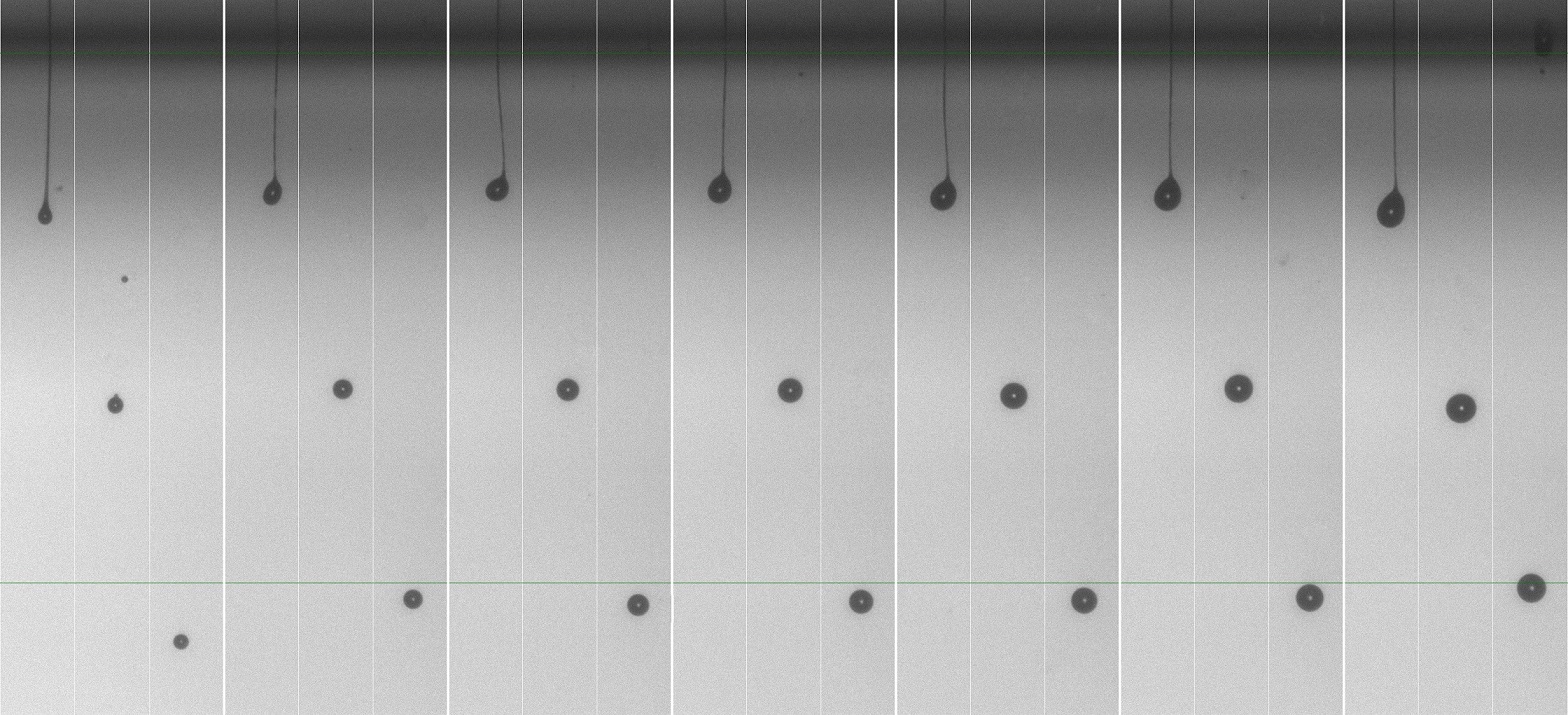Xaar’s Ultra High Viscosity jetting capability is proving instrumental in enabling German-based adhesives specialist DELO to successfully jet materials with viscosities up to 250 mPa.s at room temperature, offering benefits for many industries including consumer and automotive optical applications.
Most inkjet printheads are capable of jetting materials with viscosities with a range of 10-25 mPa.s (10-25 cP). Thanks to Xaar’s unique TF Technology, DELO’s advanced optical fluids which have significantly higher viscosities can now be successfully jetted. In this application, fluids with a viscosity of 250 mPa.s at room temperature are heated to 43°C, reducing the viscosity to 63.5 mPa.s and enabling them to be effectively ejected with Xaar’s printheads.
Having the capability to jet fluids with viscosities greater than 25 mPa.s provides much more flexibility for manufacturers of optical elements in consumer electronics and automotive applications, offering an alternative or addition to the predominantly used imprint technology for selected applications like micro lenses.
For nano-imprint applications, inkjet-printing can also replace spin-coating, reducing material waste by up to 80 percent. Manufacturers can now use Xaar’s inkjet technology to create thin protective layers, reduce reflection losses or build light blocking structures or spacers. The capability is also proving valuable for 3D-printing to create single (micro) lenses and whole micro-lens arrays.
DELO has worked closely with Xaar to evaluate and develop this application using Xaar’s new 5-step process. The new programme uses Xaar’s technical expertise and facilities, with dedicated laboratory space. The process helps with initial fluid evaluation and guidance through to sample production and application development, enabling customers to evaluate the technology with confidence. Continued support, technical advice and application improvements also form part of the process.
Optical materials based on UV-curing polymers instead of glass or injection-moulded plastics have become increasingly widespread in recent years. They are used as lenses for applications like flashlights, time-of-flight-sensors or diffractive optical elements (DOEs) for structured light emitters and miniature cameras.
DELO provides fast UV curing materials with excellent optical properties such as a matched refractive index, high transmission and non-yellowing. They are all solvent-free and provide adjusted mechanical functions and stability as well as good adhesion and application on various substrates.
“Xaar’s Ultra High Viscosity capability enables us to jet optical materials with digitally controlled precision,” comments Karl Bitzer, Head of Product Management at DELO. “We’ve been extremely impressed with the initial results which deliver both increased functionality of the fluid in the application and material savings and efficiencies.”
The precise placement of tiny droplets, a few picolitres in size, makes inkjet printing ideal for coating and protecting thin layers to achieve optical correction. It has proved to be a viable alternative to spin coating and other dispensing methods and has significantly reduced material waste, saving up to 80%.
Xaar’s unique recirculating TF Technology ensures unbeatable performance and excellent reliability without any nozzle blocking from large particles due to the fluid being kept in constant motion. It also offers increased functional capabilities for materials developers – such as flexibility, low migration and increased gamut.
“While many printheads now incorporate recirculation, Xaar’s unique TF Technology is characterised by the recirculation being directly behind the nozzles at a very high flow rate, enabling the laydown of high-viscosity materials,” comments Mike Seal, Business Development Manager at Xaar. “This, together with our range of proven printheads, means we can provide advanced material suppliers like DELO with a new solution for their specific manufacturing applications.”

 Deutsch (Germany)
Deutsch (Germany)  Polski (PL)
Polski (PL) 










